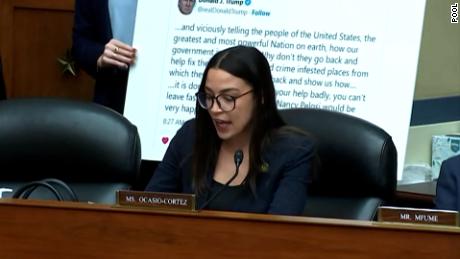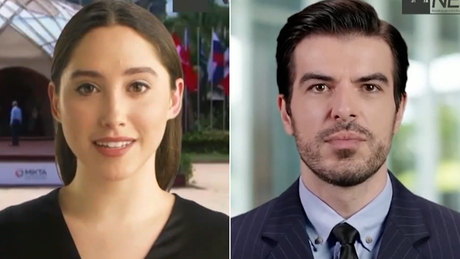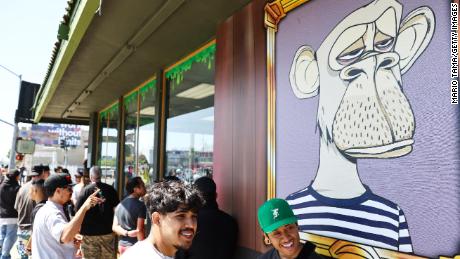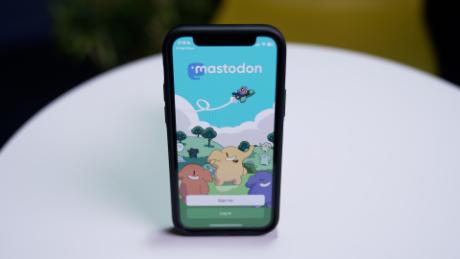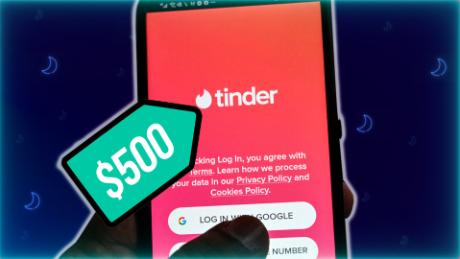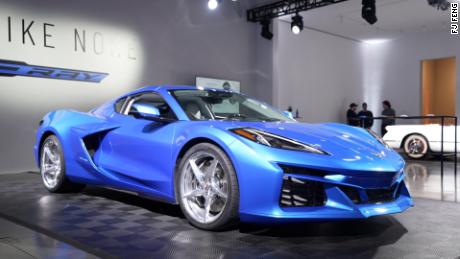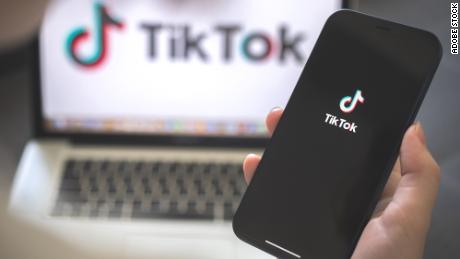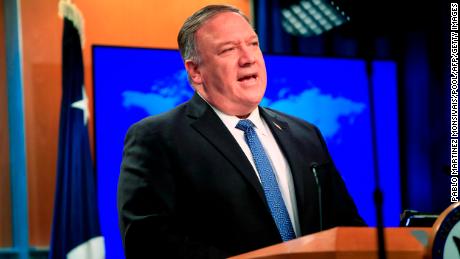Hong Kong (CNN Business)Tencent (TCEHY) just became the latest target in President Donald Trump's rapidly escalating tech war with China.
The Chinese company's popular messaging app WeChat could now be banned in the United States, if Tencent doesn't agree to sell it by mid-September. The announcement rattled investors and left companies and analysts scrambling to figure out the potential fallout.
It sent Tencent shares plunging as much as 10% in Hong Kong. They pared back some of those losses, but still ended the day down nearly 5%. Hong Kong's benchmark Hang Seng Index (HSI) fell 1.6%.
Trump issued executive orders late Thursday night that would ban WeChat and TikTok, the short-form video app owned by Beijing-based ByteDance, from operating in the United States in 45 days if they are not sold by their parent companies. Trump had already said that he would ban TikTok if a deal for the app is not reached with an American company, but the inclusion of WeChat indicates that Washington is broadening its efforts to restrict some Chinese apps from operating in the United States.
The moves to ban TikTok and WeChat represent an "unprecedented intervention by the US government in the consumer technology sector," according to Paul Triolo, head of geotechnology at Eurasia Group, a political risk consultancy.
It also marks the first time the government "has attempted to ban a software application running on millions of mobile phones" in the United States, Triolo wrote in a note on Friday.
A blow to the Chinese diaspora
A WeChat ban would be a blow to the Chinese diaspora, students and others in the United States who rely on the app to communicate with family, friends and business partners in China.
WeChat is the overseas version of Tencent's widely popular Chinese messaging app Weixin. The app provides a range of services, including instant messaging and the ability to send money to other users.
According to the order, a ban would apply to "any transaction that is related to WeChat" made by any person or "any property" subject to the jurisdiction of the United States.
China's Ministry of Foreign Affairs on Friday said it "firmly opposes" the executive orders targeting WeChat and TikTok.
"The United States is using national security as an excuse and using state power to oppress non-American businesses," ministry spokesperson Wang Wenbin said during a daily press briefing, accusing the United States of "political manipulation and oppression."
TikTok said it was "shocked" by Trump's order and warned that it "sets a dangerous precedent for the concept of free expression and open markets." The company said it will "pursue all remedies available to us."
A Tencent spokesperson, meanwhile, said the company "is reviewing the executive order to get a full understanding."
The Shenzhen-based company is a national tech champion in China. Weixin is a daily necessity for hundreds of millions of Chinese, who use the app to message friends, share photos, hail rides, pay for stuff, book restaurants, order food and a host of other services. Tencent reported in March that Weixin and WeChat have nearly 1.2 billion monthly active users. The company does not disclose user numbers by country, but industry analysts say the vast majority of them are in China.
Tencent is also the world's largest gaming company by revenue, according to market research firm Newzoo. Tencent has published several popular mobile and video games, and it also owns US-based Riot Games, has a majority stake in Supercell, and smaller stakes in other international gaming companies such as Epic (EPOR) and Activision Blizzard (ATVI), among others, according to Bernstein analyst David Dai.
The company is also one of China's largest cloud service providers, has a music streaming business ŌĆö Tencent Music (TME) ŌĆö that is listed on Wall Street, operates a popular video streaming app and recently launched a short-form video sharing app to challenge TikTok in China.
Even with the stock drop today, shares in the company are up 40% for the year. Tencent remains one of the world's most valuable tech companies, with a market cap of more than 5 trillion Hong Kong dollars ($650 billion), more than double what Netflix (NFLX) is worth.
A symbolic attack
Trump's hit on Tencent so far is mostly symbolic, given the small market share WeChat has in the United States. But if it expands into gaming apps or other areas of Tencent's business, that could be a big problem.
More than half of Tencent's revenue last year came from so-called Value Added Services, which include the company's lucrative games portfolio. Financial services and payment apps such as WeChat Pay contributed about 25% of revenue, and just under 20% came from online advertising.
Tencent operates popular mobile gaming apps, such as PlayerUnknown's Battlegrounds, or PUBG. US-based players spend a lot of money in PUBG ŌĆö it ranked 10th in the United States by consumer spend last year, according to analytics company App Annie.
Tencent could lose the United States as a market for its mobile games if the ban on Chinese apps is expanded, which appears to be the Trump administration's intent.
US Secretary of State Mike Pompeo on Wednesday said that "untrusted Chinese apps" should be removed from US app stores. He did not provide further detail as to how the sweeping restrictions would be implemented, or whether they would require the support of private companies.
Trumps executive orders would "at a minimum ... force US app store providers Apple and Google to remove both apps after the 45 day period," according to Triolo.
Collateral damage?
What remains unclear is if Apple (AAPL) and Google's (GOOGL) app stores in China would also have to remove the apps after 45 days, given the fact that they are operated by US companies.
"Given that WeChat has become a critical part of everyday life and commerce in China, such a move would likely also be cataclysmic for Apple's business in China ŌĆö without Weixin available on the iPhone, for example, sales would likely plummet," Triolo said.
Graham Webster, China Digital Economy Fellow at Washington-based think tank New America, doubts the bans will even be implemented.
"There are real privacy and cyber concerns with Chinese companies using apps, but this is not what's going on. If you wanted to deal with that, you'd have a much broader and more technical approach," Webster said.
"I could see intense lobbying on the part of US businesses. People are going to push back on this and the administration has a history of delaying and modifying" this kind of rhetoric, he added.
ŌĆö Selina Wang contributed to this report.




